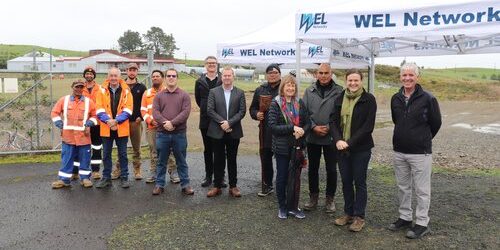
New Zealand state-owned energy company Meridian Energy has committed to the construction of a 100MW battery energy storage system (BESS), to be provided by Saft.
The two-hour duration (200MWh) resource will be built on a 3-hectare site acquired by the company last year, near New Zealand’s northernmost city, Whangārei. It will participate in energy arbitrage, frequency regulation and help free up network hosting capacity in the reserve markets of the country’s North Island.
Generator-retailer Meridian said this morning that construction of the project, Ruakākā Battery Energy Storage System (BESS), will begin in the first quarter of 2023, for expected completion and commissioning in H2 2024.
“As intermittent renewable generation increases in this country, the Ruakākā Battery Energy Storage System will help manage supply fluctuations through a low carbon footprint, reducing this country’s reliance on fossil fuels,” chief executive Neal Barclay said.
The company claimed Ruakākā will be New Zealand’s first grid-scale BESS, but that appears to not be the case. Electricity distribution company WEL Networks and developer Infratec broke ground on another 35MW project in August, also on the North Island, in its Waikato District.
WEL Networks and Infratec also contracted French battery manufacturer and BESS system integrator Saft for its project, which will provide fast reserve frequency regulation as well as backup power to the town of Huntly. Inverter maker Power Electronics NZ is providing power conversion system (PCS) equipment to that project.
Meridian’s project, even if completed later, will certainly outdo the Huntly project for size. According to a Meridian fact sheet it will require around NZ$186 million (US$118.2 million) capital investment but would earn up to NZ$35 million revenues each year against NZ$6 million annual operating costs.
Ruakākā Battery Energy Storage System will also be joined at the site by a 130MW solar PV plant in the coming years, and Meridian noted that the pair will be able to share infrastructure such as the grid connection point, reducing costs.
The project received planning approval in November, as reported by Energy-Storage.news at the time. Saft will provide the integrated BESS including power electronics, install, commission, and then operate it, while Meridian will carry out civil works, transmission company Transpower – also state-owned – will build the grid connection to its Bream Bay substation.
New Zealand does have two operational megawatt-scale battery storage systems: power distribution company Vector installed a 1MW/2.3MWh Tesla Powerpack 2 system in 2016 and energy generator-retailer Mercury deployed a 1MW/2MWh BESS, also a Tesla Powerpack 2 system, in 2018. While the latter is connected to the high-voltage transmission network, it is a pilot deployment at an R&D centre.






